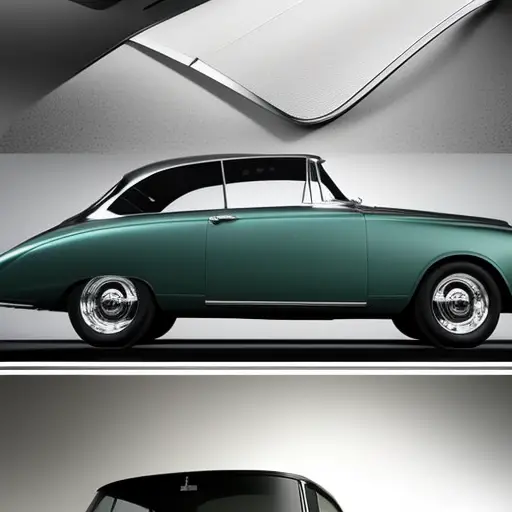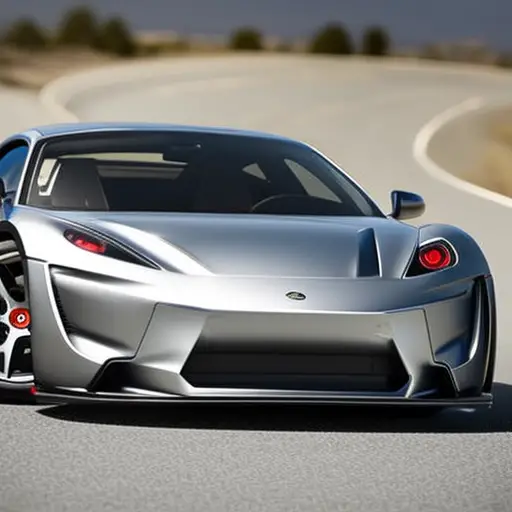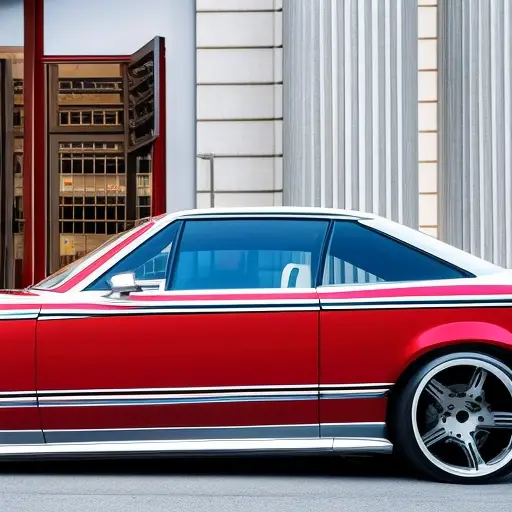The Evolution of Car Modification Technology

Embark on a journey through the dynamic landscape of car modification technology, where innovation and engineering prowess converge.
From the early days of engine tuning to the integration of advanced electronic control units, the evolution of car modification has been a testament to the relentless pursuit of performance and efficiency.
Join us as we delve into the historical milestones and cutting-edge advancements that have shaped the automotive landscape, providing a glimpse into the future of vehicular customization.
Early Innovations in Engine Tuning
Early engine tuners in the automotive industry sought to optimize performance and efficiency through modifications to the combustion process. One of the primary areas of focus was carburetor tuning. By adjusting the air-fuel mixture, these early tuners aimed to achieve the ideal ratio for combustion. This process involved meticulous adjustments to the carburetor’s fuel delivery system to ensure the engine received the optimal blend for power and efficiency.
Furthermore, ignition timing played a crucial role in engine tuning. Tuners meticulously adjusted the timing of the spark that ignites the air-fuel mixture in the combustion chamber. This adjustment was critical in maximizing power output and fuel efficiency.
As these early innovations in engine tuning progressed, they laid the groundwork for the development of more advanced and precise tuning techniques. The pursuit of optimal engine performance and efficiency through carburetor tuning and ignition timing set the stage for the subsequent advancements in performance exhaust systems.
The focus on early engine tuning paved the way for the evolution of car modification technology, leading to further enhancements in engine performance and overall vehicle efficiency.
Advancements in Performance Exhaust Systems
The development of performance exhaust systems has revolutionized the automotive industry, enhancing engine efficiency and power output through advanced exhaust design and materials. Sound engineering and material enhancements have played a crucial role in achieving optimal performance gains. The table below illustrates the key advancements in performance exhaust systems:
| Advancement | Description | Benefit |
|---|---|---|
| Mandrel-bent exhaust tubing | Smooth, unrestricted exhaust flow | Enhanced engine power and efficiency |
| Ceramic coating | Improved heat dissipation and corrosion resistance | Increased durability and longevity |
| Variable exhaust systems | Adjustable exhaust flow for different driving conditions | Optimal performance across various scenarios |
| Titanium exhaust components | Lightweight, high-strength material | Reduced overall vehicle weight |
| Acoustic tuning | Precision tuning for optimal exhaust sound | Enhanced engine acoustics and aesthetics |
These advancements have not only improved engine performance but have also contributed to a more enjoyable driving experience. As technology continues to advance, performance exhaust systems are expected to become even more sophisticated, providing further enhancements to vehicle efficiency and power.
Emergence of Electronic Fuel Injection
With the emergence of electronic fuel injection, automotive engineering has witnessed a significant shift in fuel delivery and engine management technology. Electronic Fuel Injection (EFI) has revolutionized the way fuel is delivered to the engine, replacing traditional carburetors. EFI systems precisely control the amount of fuel injected into the engine cylinders, resulting in improved fuel efficiency and better engine performance.
Unlike carburetors, which rely on a passive air-fuel mixture, EFI systems can adjust the fuel delivery in real-time based on various engine parameters, resulting in optimal combustion and reduced emissions. The electronic control unit (ECU) plays a crucial role in managing the EFI system, monitoring engine conditions, and adjusting fuel delivery and ignition timing accordingly.
This integration of advanced engine management has enabled vehicles to achieve higher fuel efficiency and lower emissions while also providing more precise control over the engine. As automotive technology continues to evolve, the integration of advanced ECU tuning has become a key focus for enthusiasts and professionals looking to enhance engine performance and efficiency.
Integration of Advanced ECU Tuning
Integration of advanced ECU tuning has become a pivotal aspect of enhancing modern vehicle performance and efficiency. Custom tuning of the Engine Control Unit (ECU) allows for precise adjustments to fuel and ignition timing, resulting in optimized power gains and improved fuel economy. Here are three key ways in which advanced ECU tuning is revolutionizing car modification technology:
-
Fine-Tuned Performance: Advanced ECU tuning enables precise calibration of engine parameters, such as air-fuel ratios and turbo boost levels, to maximize performance without compromising reliability. This customization allows for tailored adjustments that cater to individual vehicle setups and driving preferences.
-
Enhanced Power Delivery: By optimizing the ECU, custom tuning can unlock hidden power potential within the engine, leading to increased horsepower and torque. This improved power delivery not only enhances acceleration but also elevates the overall driving experience.
-
Improved Fuel Efficiency: Through advanced ECU tuning, the engine can operate more efficiently, leading to better fuel economy without sacrificing performance. Fine-tuning the ECU parameters ensures that the engine runs at its most efficient levels, reducing fuel consumption and emissions while maintaining optimal power output.
The integration of advanced ECU tuning signifies a significant advancement in car modification technology, providing enthusiasts with the means to achieve tailored performance enhancements and efficiency improvements.
The Rise of Hybrid and Electric Modifications
Amid the evolving landscape of car modification technology, hybrid and electric modifications are gaining prominence. As the automotive industry continues to prioritize sustainability and efficiency, car enthusiasts are increasingly turning to hybrid and electric vehicles for modification.
One key area of focus in this realm is battery upgrades. Enthusiasts are exploring ways to enhance the battery capacity and performance of hybrid and electric vehicles through advanced battery technologies, such as lithium-ion cells and energy-dense battery packs. These upgrades not only extend the vehicle’s range but also improve its overall performance.
In addition to battery upgrades, motor enhancements are another crucial aspect of hybrid and electric modifications. Enthusiasts are seeking ways to optimize the electric motors in these vehicles, aiming to boost power output and efficiency. This involves advanced motor control systems, improved cooling mechanisms, and the integration of high-performance electric motors.
Frequently Asked Questions
What Are the Potential Environmental Impacts of Car Modifications?
Car modifications can impact environmental sustainability due to increased carbon emissions. Alterations to engine performance, exhaust systems, and aerodynamics can lead to higher fuel consumption and emissions, contributing to environmental concerns.
How Do Car Modifications Affect the Resale Value of a Vehicle?
Car modifications can impact a vehicle’s resale value. While performance enhancements like engine upgrades may appeal to specific buyers, extensive modifications can decrease resale value as they may raise concerns about reliability and maintenance costs.
Are There Any Legal Restrictions or Regulations on Car Modifications in Different Regions?
Legal restrictions and safety regulations on car modifications vary by region. These regulations encompass emission standards, noise ordinances, and vehicle safety. It’s essential for car modifiers to be aware of and comply with these rules.
What Are the Potential Risks or Drawbacks of Integrating Advanced ECU Tuning Into a Vehicle?
When considering advanced ECU tuning, potential risks and drawbacks must be carefully weighed. Safety concerns, performance issues, and the impact on vehicle reliability are critical aspects to evaluate before integrating this technology into a vehicle.
How Do Car Modifications Impact the Overall Reliability and Longevity of a Vehicle?
Car modifications can significantly impact a vehicle’s reliability by enhancing performance but potentially reducing longevity. While they may boost performance, modifications can also increase maintenance costs and wear on components, affecting overall durability.
Conclusion
In conclusion, the evolution of car modification technology has seen early innovations in engine tuning, advancements in performance exhaust systems, the emergence of electronic fuel injection, integration of advanced ECU tuning, and the rise of hybrid and electric modifications.
These advancements have significantly enhanced the performance and efficiency of modern vehicles, leading to a more dynamic and sustainable automotive industry.





